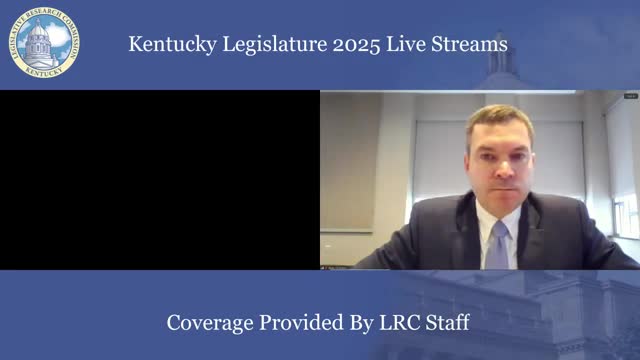House Judiciary committee advances bill to make third DUI a felony
Get AI-powered insights, summaries, and transcripts
Subscribe
Summary
The House Judiciary Committee voted to advance a committee substitute for House Bill 220, which would reclassify a third driving-under-the-influence conviction as a felony and apply provisions now reserved for fourth-or-greater offenses to third-or-greater offenses.
The House Judiciary Committee voted to advance a committee substitute for House Bill 220, which would reclassify a third driving-under-the-influence (DUI) conviction as a felony and apply provisions now reserved for fourth-or-greater offenses to third-or-greater offenses.
Representative Rebecca Raymer, who presented the bill, said the substitute extends enhanced penalties to under-21 DUIs with escalating fines and mirrors interlock requirements already applied to drivers 21 and older. She told the committee the measure “makes the DUI a felony on your third offense.”
Commonwealth’s Attorney Blake Chambers, appearing virtually, told the committee he has prosecuted thousands of cases and urged passage. He described the 2016 death of Brianna Bratcher, a 17-year-old from Muhlenberg County, saying the driver who killed her had a blood-alcohol content of 0.253 and three prior DUI convictions. “This change in the law would give a toolbox to prosecutors and to juries,” Chambers said, arguing the bill would allow juries and prosecutors to impose felony penalties in cases where a third offense occurs within the statute’s look-back period.
Scott West, representing the Kentucky Association of Criminal Defense Lawyers, testified in opposition. West warned that felonizing the third DUI could produce unintended consequences for people with substance-use disorders, and he urged stronger mandatory treatment, longer license suspensions and more data before changing the classification. “Just making it a felony and hope that that gets their attention won't do it,” West said, arguing civil and administrative sanctions and treatment could be more effective.
Committee members raised questions about specific provisions and implementation. Representative Mary Lou Marzion asked whether mandatory attendance at Alcoholics Anonymous or Narcotics Anonymous could be added; Chambers and Raymer said treatment requirements that currently appear in the fourth-or-greater statute would apply to third-or-greater under the substitute. Representative John Flannery sought confirmation that the substitute provides a minimum of 120 days for a third offense; sponsors confirmed the 120-day minimum remains in the statutory framework. Representative Kulkarni asked for data on how many people reoffend after receiving treatment; sponsors and the prosecutor said they had only anecdotal information and that comprehensive data were not available in the hearing.
The committee adopted the committee substitute and reported House Bill 220 favorably by a roll-call vote of 19 yes, 0 no. The committee record shows Representatives Banton, Bauman, Blanton, Burke, Decker, Dietz, Flannery, Griffey, Kulkarni, Lewis, Marzion, Mosher, Nemas, Petrie, Roberts, Whitaker, Williams, Wilson and Chair Elliott voting yes.
The bill’s supporters said it is intended to protect roadway safety by increasing penalties for repeat offenders, while opponents urged stronger treatment requirements and additional data to evaluate whether felony classification would reduce recidivism. The committee’s favorable report sends the measure forward for further action in the legislative process.
